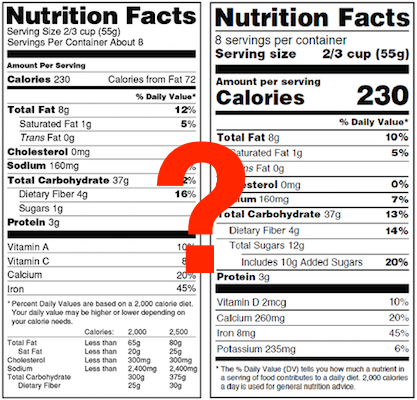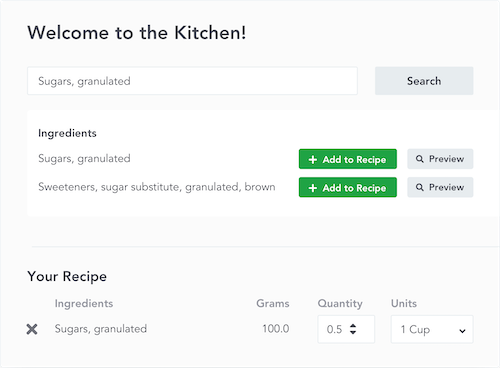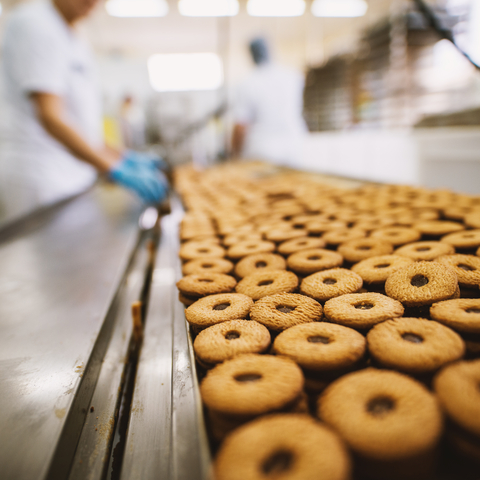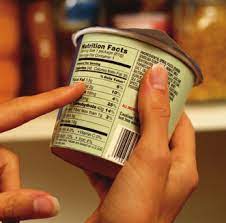GastroVocabulary Report 2016
The food and beverage businesses that join ReciPal collectively give us a unique vantage point of the industry’s movement towards healthier food and beverage options and new trends. Every day, we see exciting new users, many of them representing brand new businesses or existing ones looking to add to, modify, and improve their menus and product lines.
Here's a sneak peek (with details below) of a few interesting trends revealed through 1,000+ users and 200+ tracked keywords in our first ever GastroVocabulary report:
- Organic and Gluten Free are the big 2...
- ...pushing aside vague terms like Gourmet, Artisan, and Handmade.
- "No" words like non-GMO, no preservatives, and dairy free remain prevalent.
- Source is key - the number using "local" surprised us.
- Some disproportionate newcomers - cold pressed, delivery, and some potential future trends.
ReciPal’s first ever GastroVocabulary report!
In this first annual (and hopefully recurring) report we kept track of over 200 food trend and dietary words used by more than 1,000 ReciPal users (affectionately, ReciPalers) on their public websites and social media accounts. Most of our users fall into the packaged food category. We analyzed word frequencies over time, looked for trends that occur together often, and kept an eye out for the brand new trends shaping the future of food.
Our goal is to shed light on words and trends currently in fashion, helping food and beverage businesses get a feel for how others are sourcing ingredients, making products, and branding themselves.

Here are the top 20 food trend words that new ReciPalers are using, listed by percentage of users in the study:
| Organic | 18% |
| Gluten Free | 16% |
| Local | 14% |
| Vegan | 9% |
| All Natural | 7% |
| Natural | 6% |
| Gourmet | 5% |
| Raw | 5% |
| Artisan | 5% |
| No Preservatives | 5% |
| Non Gmo | 5% |
| Dairy Free | 4% |
| Handmade | 4% |
| Sustainable | 3% |
| Cold Pressed | 3% |
| Hand Crafted | 3% |
| Small Batch | 3% |
| Paleo | 3% |
| Homeade | 2% |
| Locally Sourced | 2% |
Organic and Gluten Free Reign Supreme
This shouldn’t surprise anyone. Organic led the list, appearing in 18% of users' websites. Gluten Free appeared 16% of the time, Local and Locally Sourced together appeared in 16% of users, and Natural and All Natural came in at 13%.
After these four, usage fell off steeply in other words we tracked. They have definitely been the Big Four trends in food for the past several years, corroborated by our data.
The Old Guard
Classically vague food descriptors like Gourmet, Handmade, Hand Crafted, and Old Fashioned will probably always be in style, though they are being passed up by terms that describe a food’s source rather than the processing it went through. Gourmet leads this group of words, commanding 5% of ReciPal users, less than a third of the top, newer terms rapidly gaining favor.
| Gourmet | 5% |
| Artisan | 5% |
| Handmade | 4% |
| Hand Crafted | 3% |
| Homeade | 2% |
We’ve seen this group of terms getting pushed aside especially on recently started food business’ websites and social media accounts. Newer food startups are more likely to use the contemporary buzzwords at the top of the list. Because these terms are vague, consumers may be less drawn to them in favor of more descriptive words.
“No” Words
Prior to the modern movement towards healthier food and beverage options, producers answered the negative response by consumers to their processing techniques with specifically anti process-oriented terms. No Preservatives, No Additives, No Artificial Ingredients and dietary restriction terms like Dairy Free, Soy Free, Sugar Free, and now Gluten Free became prevalent. Interestingly, these terms appear to have fallen out of favor with the many new food businesses joining ReciPal. Fat Free claims, once extremely popular, are notably non-existent:
| Gluten Free | 16% |
| No Preservatives | 5% |
| Non Gmo | 5% |
| Dairy Free | 4% |
| Soy Free | 2% |
| No Additives | 2% |
| Sugar Free | 1% |
| No Artificial Ingredients | 1% |
| No Added Sugar | 1% |
Low on the totem pole is the currently newsworthy term non-GMO at #11 overall and 5%. In the US, labeling of food that uses genetically modified ingredients isn’t yet mandatory, but some producers, notably Campbell's, have opted to voluntarily label their products as being non-GMO. The low usage may partly be a result of non-GMO certification being a long process and companies coming to ReciPal before completing the certification. They may use non-GMO ingredients, but not be non-GMO certified quite yet. We’ll be following the term closely as labeling policy shifts.
Source is Key
Everyone cares where their food comes from nowadays and our data confirm that trend. Words that describe how an ingredient is grown or raised like Organic, All Natural, and Sustainable and source words like Local and Regionally Sourced dominate the top of the list.
They also occur together, and they don’t occur often alongside with the “Old Guard” words. Only 3% of ReciPalers who used Organic also used Gourmet, but 52% of ReciPalers who used Organic also used Local or Locally Sourced.
80% of ReciPalers who used Vegan also used Gluten Free, making them the two most highly correlated terms in our study.
There is controversy about the definitions of these words and consumer confusion is rampant. The exact definitions of Natural, All Natural, and 100% Natural, for example, are still loosely defined. Local could mean the farmer next door or one 400 miles away. And at a certain scale, staying truly local can become impossible. As they become more tightly defined and regulated, we’re interested in seeing how the usage frequency of these terms is affected.
Trends In Food Sub Industries
Delivery
Delivery isn’t just for pizza anymore. With Blue Apron leading the way in the US, the healthy food delivery industry is booming, especially in cities, and consumers care about growing and raising methods and source just as much for the food that’s handed to them at the door. Delivered food businesses represent 6% of ReciPal users in the study. A significant number - 41% of them used the terms Local or Locally Sourced and a third - 34% used organic. That tells us that delivery is one of the major vehicles (pun intended) driving the local food trend. They also tend to specialize in a dietary niche, like vegan or paleo. Here are the top five words used by delivery businesses:
| Local | 41% |
| Organic | 34% |
| Gluten Free | 32% |
| Paleo | 14% |
| Vegan | 12% |
Bakery
21% of ReciPal users in the study are bakery businesses, the largest sub industry in our user base. Of bakeries, over one-fifth or 22% used the term gluten free. Bakeries are also branding themselves as using local ingredients or being local, with 13% using this term.
Cold Pressed Juice
6% of ReciPalers make juice, and we’ve seen a big trend in this sub industry as major players emerge on the market like Juice Press and Suja. Of juiceries in our study, a whopping 47% use the term Cold Pressed. The cold pressed process goes hand in hand with preserving the nutritional qualities of juice, and juicers were even more interested in organic, using it 50% of the time. 25% of juicers used the term Cleanse.
The Future
We can’t wait to follow where food trends are headed. Plant Based Protein and Food Waste are trends that have been in the news a lot lately, but still have yet to catch on amongst ReciPal users, appearing in only 1.3% and 0.3%, respectively of users' sites so far. Probiotic and Fermented Food users were 1.5% of our study. Cannabis and Edibles related food businesses represent 0.5% of users, but we expect that number to grow as legislation in individual states changes.






